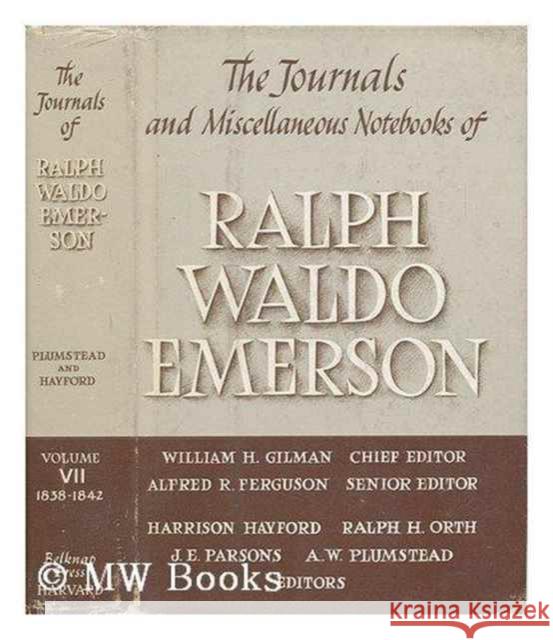Journals and Miscellaneous Notebooks of Ralph Waldo Emerson » książka
Journals and Miscellaneous Notebooks of Ralph Waldo Emerson
ISBN-13: 9780674484573 / Angielski / Twarda / 1969 / 600 str.
Journals and Miscellaneous Notebooks of Ralph Waldo Emerson
ISBN-13: 9780674484573 / Angielski / Twarda / 1969 / 600 str.
(netto: 658,56 VAT: 5%)
Najniższa cena z 30 dni: 687,24
ok. 30 dni roboczych.
Darmowa dostawa!
When Emerson began these journals in June of 1838, he "had achieved initial success in each of his main forms of public utterance. The days of finding his proper role and public voice were now behind him...and his...personal life had healed from earlier wounds." Now he was married to Lydia Jackson of Plymouth and was the father of a young son, Waldo. They lived in a large, comfortable house in Concord, only a half-day's drive from Boston but close to the solitude of nature. Still to come was the controversy he would create by his address to the graduating class at Harvard Divinity School an address in which he would say that the Divinity School trained ministers for a dead church. These journals record his responses to the severe criticism and trace his struggles as he overcame the stings of attack with a growing confidence in himself as a thinker, lecturer, and writer.In addition to introspective writings, the journals contain Emerson's observations on his reading, on his country, especially during the presidential campaign of 1840, on Slavery' on art and nature, on religion and the need for a new understanding of its meaning, and on love. His relations with such close friends as Bronson Alcott and Margaret Fuller also are reflected here, as are his developing friendships with Thoreau, Jones Very, Samuel Ward, Caroline Sturgis, and William Ellery Charming, the poet.During this period he gave three series of lectures and published his second book, Essays, which contains some of his greatest work-"Self Reliance," "Compensation," and "The Over-Soul." The major workshop for Essays, these journals are indispensable for the study of Emerson's creative processes. Many entries are published here for the first time, including experimental lists of topics for Essays and possibly the earliest draft of the poem "The Sphinx."For Emerson, the journal was one of the most important of literary genres. His own journals not only formed his "artificial memory," but became "a living part of him." He later wrote, "The man is only half himself, the other half is his expression."











